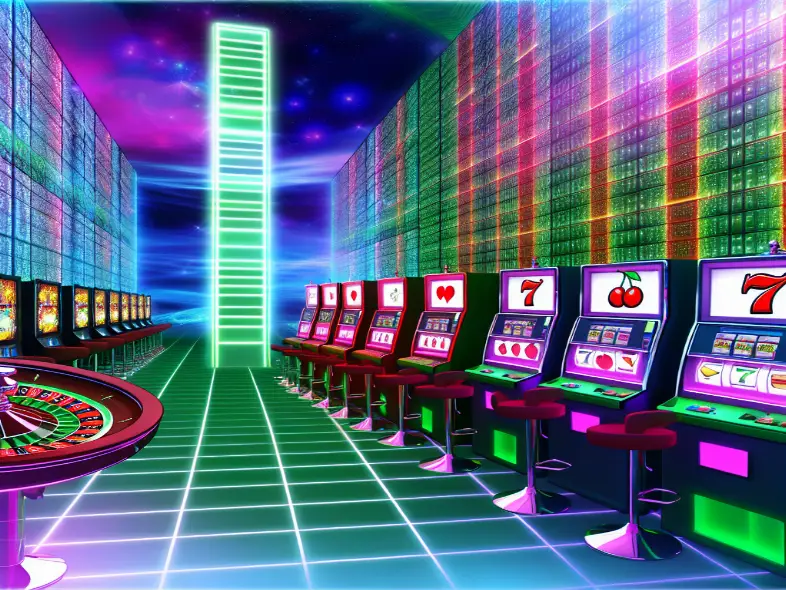When depositing money in Stake Casino, there are several payment methods available for players to choose from. These methods include credit/debit cards, e-wallets, bank transfers, and cryptocurrencies. Players should select the method that is most convenient and secure for them.
Before making a deposit, players should ensure that they have read and understood the casino”s terms and conditions regarding deposits. This includes minimum and maximum deposit amounts, as well as any fees that may be associated with certain payment methods. It is also important to check if there are any deposit bonuses or promotions that players can take advantage of.
Once a payment method has been selected, players can easily deposit money into their casino account by following the instructions provided on the casino”s website. Most deposits are processed instantly, allowing players to start playing their favorite casino games right away. Players should always remember to gamble responsibly and only deposit money that they can afford to lose.
Choosing a Payment Method
When it comes to choosing a payment method for online casino Aviator Pin Up, there are a few factors to consider to ensure a smooth and secure experience. One important aspect to look at is the security measures in place for each payment option. Make sure to choose a method that uses encryption technology to protect your personal and financial information.
Another factor to consider is the speed of transactions. Some payment methods may have faster processing times than others, which can be crucial if you want to start playing your favorite games right away. Additionally, take into account any fees associated with each payment method, as they can vary depending on the provider.
- Check the security measures in place for each payment option
- Consider the speed of transactions
- Take into account any fees associated with each payment method
Creating a Casino Account
Creating a casino account is the first step towards enjoying the exciting world of online gambling. To get started, you will need to choose a reputable online casino that offers a wide range of games and secure payment options. Make sure to read reviews and check for licenses to ensure the casino is legitimate.
Once you have selected a casino, you will need to sign up for an account. This typically involves providing your name, email address, and creating a username and password. Some casinos may also require additional information for verification purposes. After completing the registration process, you can deposit funds into your account to start playing.
When making a deposit, you will have various payment options to choose from, such as credit/debit cards, e-wallets, bank transfers, and cryptocurrency. It is important to select a secure payment method and check for any fees or processing times associated with your chosen option.
After funding your account, you can explore the casino”s game library and choose from a plethora of options, including slots, table games, live dealer games, and more. Be sure to set a budget and play responsibly to avoid overspending and potential gambling addiction.
In conclusion, creating a casino account is a straightforward process that allows you to access a world of entertainment and potential winnings. By following the steps outlined above and choosing a reputable casino, you can enjoy a safe and enjoyable online gambling experience.
Depositing Funds into Account
When it comes to depositing funds into your casino account, there are several options available to you. One of the most common methods is using a credit or debit card. This is a quick and convenient way to add money to your account, but keep in mind that some banks may have restrictions on gambling transactions.
Another popular option is to use an e-wallet service, such as PayPal or Skrill. These services act as a middleman between your bank account and the casino, allowing for secure and speedy transactions. Many players prefer this method for its added layer of security and privacy.
If you prefer to use cash, some casinos offer the option to deposit funds in person at their physical location. This can be a great option if you want to avoid using your bank account or credit card online. Just be sure to check the casino”s policies and procedures for cash deposits before making a trip.
Understanding Deposit Limits
When it comes to online casinos, understanding deposit limits is crucial for responsible gambling. Setting deposit limits helps players control their spending and avoid overspending. By setting a limit on how much you can deposit within a certain timeframe, you can ensure that you are not gambling more than you can afford.
Most online casinos offer players the option to set daily, weekly, or monthly deposit limits. This allows players to manage their budget effectively and prevent compulsive gambling behavior. It is important to set deposit limits that are realistic and within your financial means. By sticking to these limits, you can enjoy the thrill of online gambling without putting yourself at financial risk.
- Deposit limits help players control their spending
- Setting realistic limits is crucial for responsible gambling
- Online casinos offer options for daily, weekly, or monthly limits
Ensuring Secure Transactions
Ensuring secure transactions is a top priority for online casinos. With the increasing number of cyber threats and hacking attempts, it is crucial for casinos to implement robust security measures to protect their players” personal and financial information.
One of the most common security measures used by online casinos is encryption. Encryption technology scrambles data to make it unreadable to anyone without the proper decryption key. This ensures that sensitive information such as credit card numbers and personal details are safely transmitted over the internet.
Another important aspect of ensuring secure transactions is the use of secure payment gateways. These gateways act as a middleman between the player and the casino, ensuring that financial transactions are processed securely and efficiently. By using reputable payment gateways, casinos can provide players with peace of mind knowing that their money is safe.
Regular security audits and assessments are also essential for online casinos to maintain a high level of security. By regularly testing their systems and processes, casinos can identify and address any vulnerabilities before they can be exploited by cyber criminals.
In conclusion, ensuring secure transactions is paramount for online casinos to build trust with their players and protect sensitive information. By implementing encryption technology, using secure payment gateways, and conducting regular security audits, casinos can create a safe and secure environment for players to enjoy their favorite games.





